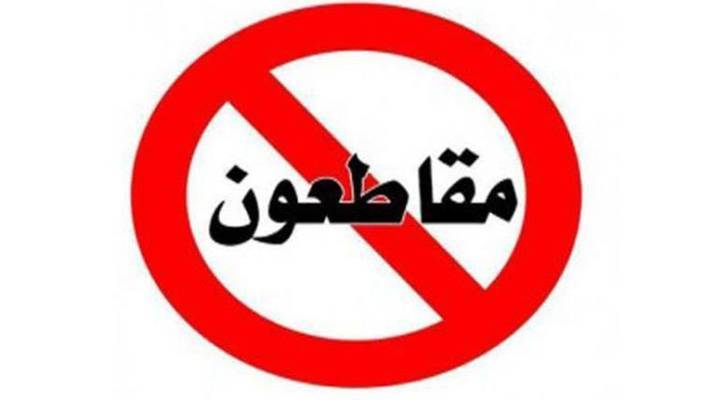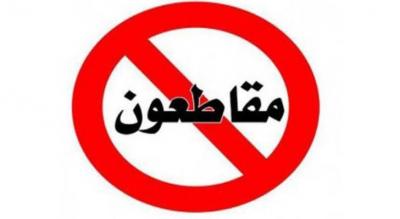Not long ago in Cairo, a worker was cleaning tables at a McDonald's branch that was empty of customers. Other branches of Western fast-food chains in the Egyptian capital also appeared devoid of patrons. All these restaurants faced a boycott campaign due to the Israeli military attack on Gaza. Western brands feel the weight of the boycott in Egypt and Jordan, and there are signs that the campaign is spreading to other Arab countries like Kuwait and Morocco. Some companies targeted by the campaign are viewed as having pro-Israel stances, and it is rumored that some have financial ties to Israel or investments there.
As the campaign gained traction, calls for boycotts circulating on social media expanded to include dozens of companies and products, prompting shoppers to turn to local alternatives. In Egypt, where opportunities for protest in the streets are limited due to security restrictions, some see the boycott as the optimal or only way to express themselves.
In Jordan, residents supporting the boycott sometimes enter branches of McDonald's and Starbucks to encourage the few customers to move to other places. Footage has circulated showing what appear to be Israeli soldiers washing clothes with well-known brand detergents, urging viewers to boycott them. Ahmed Al-Zarrou, a purchasing agent at a major store branch in the capital Amman, where customers opted for local products, remarked, "Nobody is buying these products."
In Kuwait City, a visit on Tuesday observed that seven branches of Starbucks, McDonald's, and KFC were almost completely devoid of customers. An employee at one of the Starbucks branches, who wished to remain anonymous, stated that other American brands have also been affected. In Morocco's capital, Rabat, an employee at a Starbucks branch reported a noticeable decline in customer numbers this week, though neither the employee nor the company provided any figures.
Last month, McDonald's stated that misinformation about its position on the conflict "frightened" it and confirmed that its doors were open to everyone. The Egyptian franchise owner stated that it is Egyptian-owned and pledged to provide 20 million Egyptian pounds ($650,000) in aid for Gaza. Starbucks did not respond to a request for comment regarding the campaign. In a statement on its website, it claimed to be a non-political organization and denied rumors that it had supported the Israeli government or army. Other Western companies have yet to respond to Reuters' requests for comment.
### "Unprecedented Reaction"
Boycott campaigns have spread in countries that have historically shown overwhelming support for the Palestinians. Egypt and Jordan signed peace treaties with Israel decades ago, but these have not led to popular rapprochement. Protests also reflect a wave of anger over the Israeli military operation, which has been more devastating than previous attacks, causing a humanitarian crisis and the death of 13,300 civilians according to statistics from the Hamas-controlled Gaza Strip.
Previous boycott campaigns in Egypt, the most populous Arab country, did not have such an impact, including the Palestinian-led Boycott, Divestment and Sanctions movement. Hesham Mahmoud, an activist with the boycott movement in Egypt, stated, "The scale of the aggression on Gaza is unprecedented. Therefore, the reaction, whether in the Arab street or even internationally, is unprecedented as well." Activists have focused on Starbucks due to its lawsuit against its workers' union over a statement about the conflict between Israel and Hamas, and on McDonald's after its Israeli agent claimed to provide free meals to Israeli soldiers.
An employee at McDonald's Egypt, who requested anonymity, revealed that sales for the Egyptian franchise have dropped by at least 70% in October and November compared to the same months last year. Samah El-Sadat, an Egyptian politician and co-founder of "TBS Holding," a supplier to Starbucks and McDonald's, noted a drop or slowdown of around 50% in orders for both companies.
### Mixed Responses
Despite efforts by targeted brands to defend themselves and sustain their businesses through special offers, boycott campaigns have continued to spread, extending in some cases beyond the Arab world. In majority-Muslim Malaysia, an employee at a McDonald's branch in Putrajaya reported a 20% drop in customers, a figure that Reuters has yet to verify. The Grab taxi app also faced calls for a boycott in Malaysia after the CEO's wife stated she had "fallen in love with Israel" during visits there. She later claimed that her posts were taken out of context. Both Grab and McDonald's in Malaysia announced after the boycott calls that they would donate aid to the Palestinians.
Earlier this month, the Turkish parliament removed Coca-Cola and Nestlé products from its restaurants, with a parliamentary source citing "public anger" against the two brands, even though no major Turkish company or government agency has severed ties with Israel. The responses to the boycott campaigns varied, with little significant impact in some countries including Saudi Arabia, the UAE, and Tunisia. Even in places where the boycott has gained a broader response, some questioned whether it would have a substantial effect.
Ihsan Abu Shalabi, a kiosk owner in Cairo, stated that true support for the Palestinians requires bearing arms and fighting alongside them.




